Potassium-Rich Foods: How To Boost Your Diet For Better HealthPotassium-Rich Foods: How To Boost Your Diet For Better Health
There is no better reference for potassium than combining this nutrient with bananas. Although bananas are a favorite and affordable source of potassium, they are not the only, let alone the best, source of this mineral.
In fact, many foods contain a more concentrated source of potassium and come in different flavors and other nutrients. It is important to note that potassium is very important for human health in general. This powerful mineral and electrolyte are essential for healthy muscle function, the transmission of nerve impulses, and the regulation of the heartbeat.
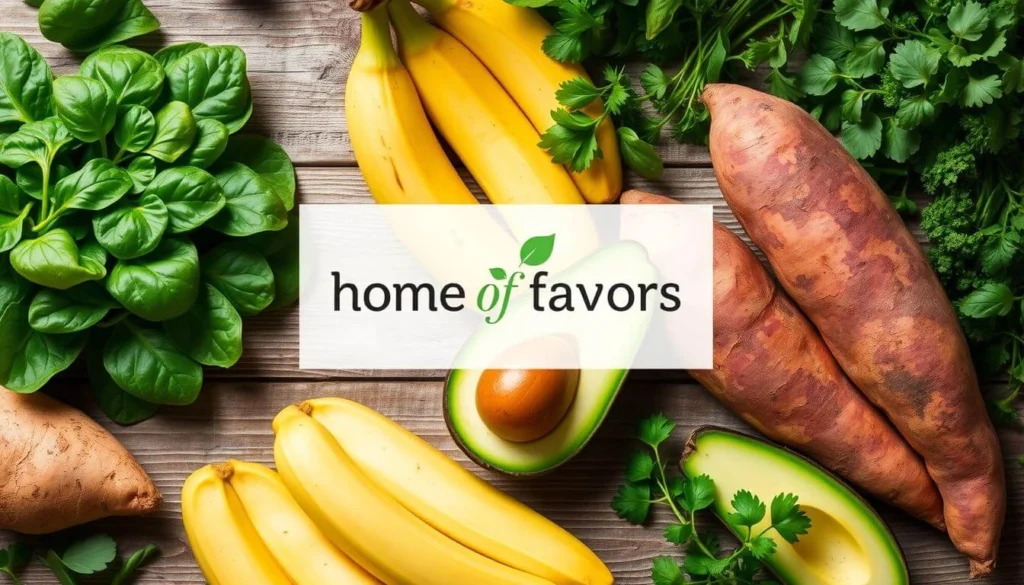
It also plays a role in modulating the actions of sodium, making it an important nutrient in regulating blood pressure and fluid balance. However, potassium deficiency is fairly common, primarily because few people put as much effort into consuming this micronutrient as they do calcium or magnesium.
A large number of people fall short of the recommended 4,700 milligrams per day, leaving the body vulnerable to signs such as muscle cramps, fatigue, and high blood pressure. Fortunately, there are a variety of potassium-rich foods available to help you meet your nutritional needs.
Whether you love colorful fruits and green vegetables or delicious beans and lesser-known sources of protein, it’s easy to add them in. Now let’s explore the best options for potassium-rich foods that are not limited to bananas, but that will change not only your meals but your life as well.
Why Potassium is Essential for Your Health
Potassium’s Role in the Body
Potassium is a critical electrolyte that supports various functions in the body. It helps maintain fluid balance, ensuring that water and nutrients move efficiently in and out of cells. This balance is essential for hydration and overall cellular function. Additionally, potassium plays a vital role in nerve signaling, facilitating communication between your brain and muscles. This function is particularly important during physical activity, where adequate potassium levels prevent cramps and fatigue. Another key role is in muscle contractions, including the heart muscle, which relies on potassium to maintain a steady rhythm and prevent arrhythmias.
Daily Potassium Requirements
For most adults, the recommended daily intake of potassium is 4,700 milligrams. Unfortunately, studies show that the majority of people fall short of this target. Individual needs can vary based on factors like age, activity level, and health conditions. Athletes, for example, may require more potassium to replenish what is lost through sweat. Conversely, people with kidney conditions may need to monitor their potassium intake carefully to avoid complications.
The Sodium-Potassium Balance
One of potassium’s most crucial functions is counterbalancing the effects of sodium. High sodium intake, common in processed and fast foods, can lead to elevated blood pressure and strain on the cardiovascular system. Potassium helps mitigate this by promoting sodium excretion through urine, reducing water retention, and supporting healthy blood pressure levels. This balance is essential for cardiovascular health and overall well-being.
Signs of Potassium Deficiency
When potassium levels are too low—a condition known as hypokalemia—the body sends warning signs. Symptoms include fatigue, muscle weakness, and cramps that can make daily activities difficult. Severe deficiencies may lead to irregular heartbeats or even life-threatening complications. Recognizing these symptoms early and addressing them through dietary changes is crucial for maintaining health.
Top Potassium-Rich Fruits and Vegetables
Fruits to Focus On
Certain fruits are excellent sources of potassium, offering a delicious way to meet your daily requirements. Popular options include:
- Bananas: Often considered the poster child for potassium, a medium banana contains approximately 422 mg of potassium. They are also rich in natural sugars and fiber, making them a quick energy source.
- Avocados: One avocado provides about 975 mg of potassium, along with healthy fats and vitamins that support heart health.
- Oranges and Orange Juice: A medium orange contains about 240 mg of potassium, while a cup of orange juice can provide up to 500 mg.
- Cantaloupe: This refreshing melon offers around 427 mg of potassium per cup, along with hydrating properties and antioxidants.
Vegetable Powerhouses
Vegetables are another excellent source of potassium, often offering additional benefits like fiber and antioxidants. Consider incorporating the following:
- Spinach: One cup of cooked spinach provides a whopping 839 mg of potassium, along with iron and vitamins A and K.
- Sweet Potatoes: A medium sweet potato contains about 541 mg of potassium, along with beta-carotene and fiber.
- Broccoli: One cup of cooked broccoli offers 458 mg of potassium, in addition to its immune-boosting vitamin C content.
- Zucchini: With 295 mg of potassium per cup, zucchini is a versatile and low-calorie option.
Serving Ideas
Incorporate these fruits and vegetables into your diet with these tips:
- Avocado Toast: Spread mashed avocado on whole-grain toast and sprinkle with sea salt for a nutritious breakfast.
- Spinach Smoothies: Blend spinach with a banana, orange juice, and yogurt for a potassium-packed smoothie.
- Roasted Sweet Potatoes: Slice sweet potatoes into wedges, toss with olive oil and spices, and roast until golden.
Fresh vs. Frozen
When choosing between fresh and frozen produce, both can be excellent options. Fresh produce is ideal for peak flavor and texture, while frozen options retain most nutrients due to rapid freezing after harvest. Opt for whichever fits your budget and lifestyle.
Protein and Dairy Sources of Potassium
Legumes and Beans
Legumes and beans are nutrient-dense options that provide both potassium and protein. Some top choices include:
- Lentils: One cup of cooked lentils contains approximately 731 mg of potassium.
- Black Beans: A cup of cooked black beans offers around 611 mg of potassium.
- Chickpeas: One cup of cooked chickpeas provides about 474 mg of potassium, along with dietary fiber.
Seafood Options
Certain types of fish are rich in potassium and support heart health with omega-3 fatty acids. Consider:
- Salmon: A 3-ounce serving of cooked salmon provides 534 mg of potassium.
- Cod: This mild-flavored fish contains about 439 mg of potassium per 3-ounce serving.
Dairy Products
Dairy products are often overlooked as potassium sources, but they are excellent additions to a balanced diet:
- Yogurt: A cup of plain, low-fat yogurt contains around 573 mg of potassium.
- Milk: One cup of milk provides about 322 mg of potassium.
Easy Meal Ideas
- Lentil Soup: Simmer lentils with onions, carrots, and vegetable broth for a hearty potassium-rich meal.
- Grilled Salmon with Steamed Broccoli: Pairing salmon with broccoli creates a balanced plate high in potassium and essential nutrients.
- Yogurt Parfait: Layer Greek yogurt with fresh fruit and a sprinkle of nuts for a nutritious snack.
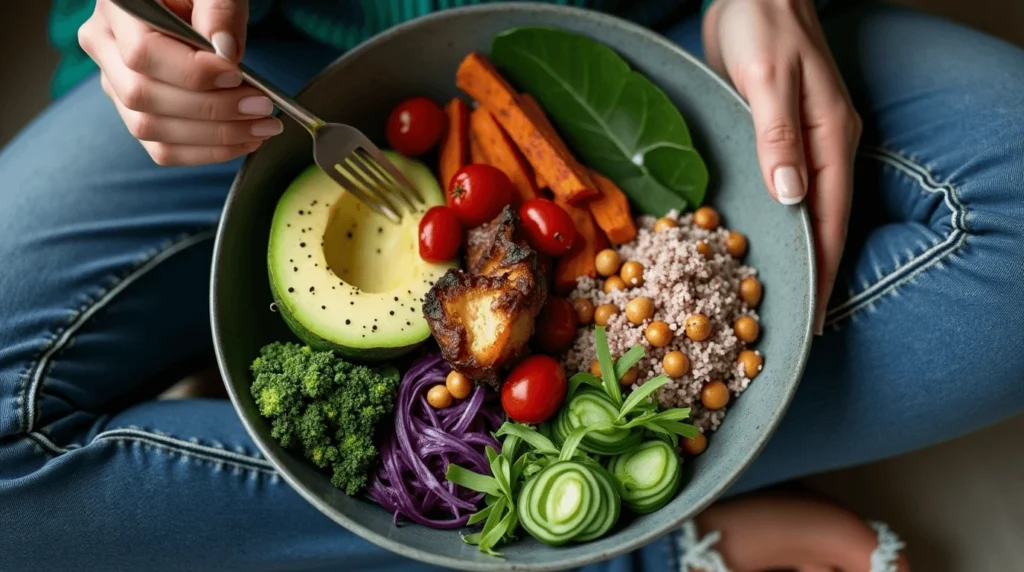
Surprising Sources of Potassium You Might Not Know
Dried Fruits and Nuts
These portable snacks pack a potassium punch:
- Dried Apricots: Just 1/4 cup provides 488 mg of potassium.
- Raisins: A 1/4-cup serving contains approximately 300 mg.
- Almonds: One ounce offers around 200 mg of potassium.
Coconut Water
Known for its hydrating properties, coconut water is a natural electrolyte booster with about 600 mg of potassium per cup. It’s an excellent post-workout drink.
Salt Substitutes
Many salt substitutes use potassium chloride instead of sodium chloride, making them a good option for those looking to reduce sodium intake while boosting potassium levels.
Snack and Meal Inspiration
- Trail Mix: Combine dried apricots, raisins, and almonds for an on-the-go snack.
- Potassium Smoothie: Blend coconut water with a banana, spinach, and frozen mango for a refreshing drink.
- Fortified Oatmeal: Add dried fruits and nuts to your morning oats for a potassium-rich start to the day.
Tips for Safely Increasing Your Potassium Intake
Start with Food First
Meeting your potassium needs through food is the safest and most effective method. Whole foods not only provide potassium but also offer additional nutrients like vitamins, fiber, and antioxidants that supplements lack.
When Supplements are Necessary
In some cases, potassium supplements may be recommended, such as for individuals taking certain medications like diuretics that deplete potassium. Always consult a healthcare provider before starting supplements to avoid complications.
Avoiding Overconsumption
While potassium is essential, too much can lead to hyperkalemia, a condition characterized by dangerously high potassium levels. This is especially risky for individuals with kidney or heart conditions. Stick to dietary sources unless otherwise advised by a doctor.
Budget-Friendly Potassium Foods
Incorporating potassium into your diet doesn’t have to be expensive. Affordable options include:
- Potatoes: A medium potato contains about 926 mg of potassium.
- Bananas: Inexpensive and versatile, bananas are a staple potassium source.
- Beans: Dried beans are cost-effective and provide multiple servings of potassium-rich meals.
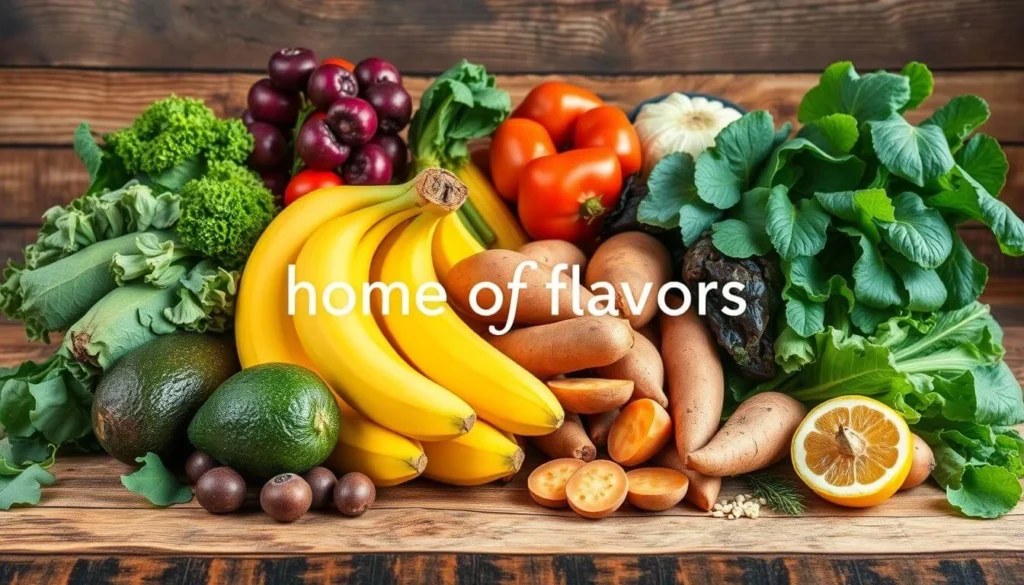
Conclusion
Potassium is a vital nutrient that supports nearly every function in the body, from maintaining fluid balance and heart health to promoting strong muscles and nerves. By incorporating a variety of potassium-rich foods into your diet, you can improve your overall health and reduce the risk of deficiencies. Whether you’re adding sweet potatoes to your dinner plate or sipping on coconut water after a workout, small, consistent changes can make a big difference.
Start today by exploring the diverse range of potassium-packed options available. Your heart, muscles, and overall well-being will thank you. Make potassium a priority in your diet for a healthier tomorrow!
Frequently Asked Questions (FAQ)
1. Why is potassium important for my health?
Potassium is an essential mineral that helps regulate fluid balance, nerve signaling, muscle contractions, and heart rhythm. It also plays a crucial role in maintaining healthy blood pressure and supporting overall cell function.
2. How much potassium should I consume daily?
The recommended daily intake of potassium for most adults is 4,700 milligrams. However, individual needs may vary depending on factors like age, activity level, and health conditions. Athletes or people with certain medical conditions may require more or less potassium.
3. What are the signs of potassium deficiency?
Signs of potassium deficiency (hypokalemia) include fatigue, muscle weakness, cramps, and in severe cases, irregular heartbeats or life-threatening complications. If you experience these symptoms, consider adjusting your diet or consulting a healthcare provider.
4. What are some potassium-rich fruits?
Fruits high in potassium include bananas, avocados, oranges, cantaloupe, and kiwi. These fruits provide varying amounts of potassium along with vitamins and other essential nutrients.
5. Which vegetables are high in potassium?
Vegetables such as spinach, sweet potatoes, broccoli, and zucchini are excellent sources of potassium. These vegetables also offer other health benefits like fiber and antioxidants.
6. Can I get potassium from dairy products?
Yes! Dairy products like yogurt and milk are good sources of potassium. For example, a cup of plain, low-fat yogurt contains about 573 mg of potassium.
7. Are legumes and beans good sources of potassium?
Absolutely! Legumes and beans like lentils, black beans, and chickpeas are rich in potassium, as well as protein and fiber, making them excellent additions to a healthy diet.
8. What are some surprising sources of potassium?
Some lesser-known potassium-rich foods include dried apricots, raisins, almonds, coconut water, and salt substitutes containing potassium chloride.
9. Can I take potassium supplements?
While food should be your primary source of potassium, supplements may be necessary for some individuals, especially those on medications that deplete potassium. Always consult a healthcare provider before taking potassium supplements.
10. What are some budget-friendly potassium-rich foods?
Affordable potassium-rich foods include potatoes, bananas, beans, and spinach. These foods provide an inexpensive way to meet your daily potassium needs.
11. How can I incorporate more potassium into my meals?
You can boost your potassium intake by adding potassium-rich foods to meals. For example, try avocado toast, spinach smoothies, lentil soup, or a yogurt parfait for a potassium-packed snack or meal.
12. Is there a risk of consuming too much potassium?
Yes, excessive potassium intake can lead to hyperkalemia, a condition with dangerously high potassium levels. This is particularly risky for individuals with kidney or heart conditions. Always stick to recommended dietary sources unless advised otherwise by a healthcare provider.

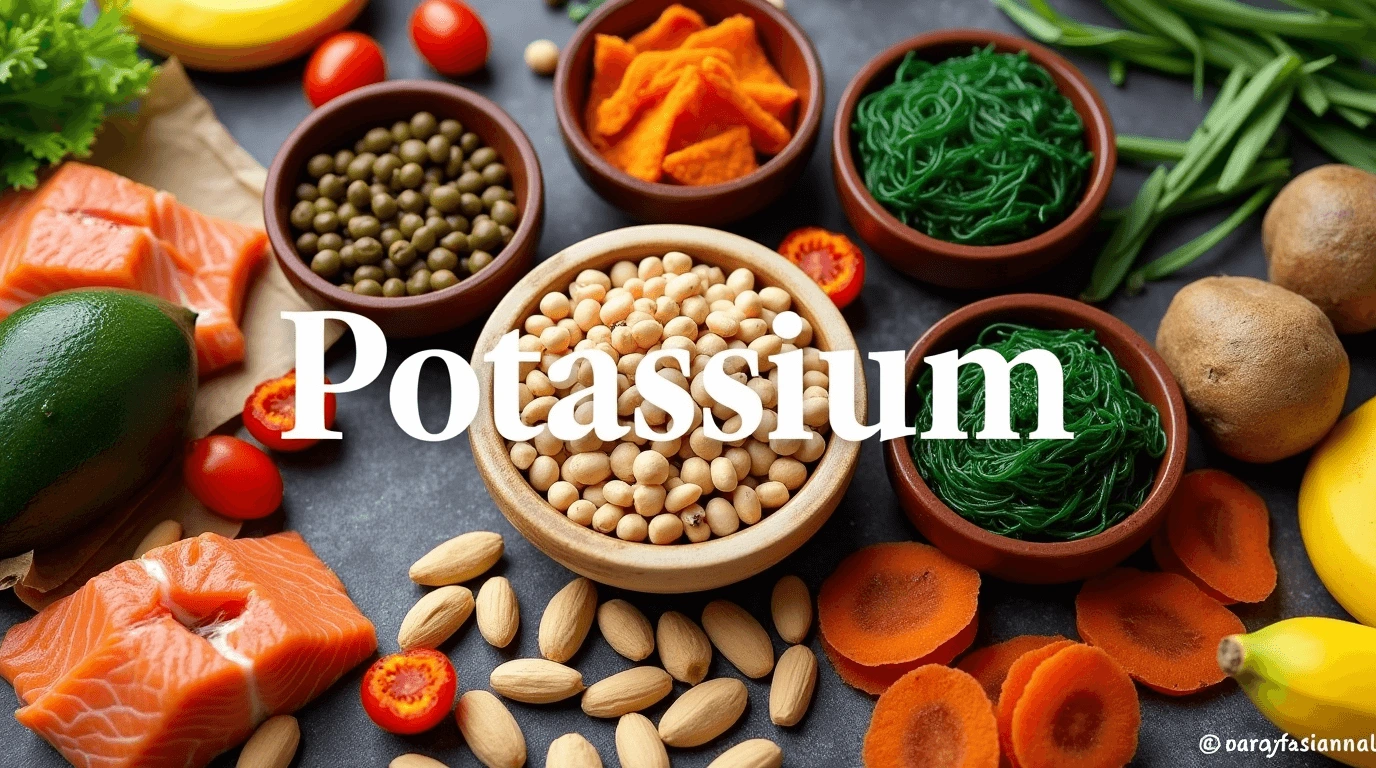

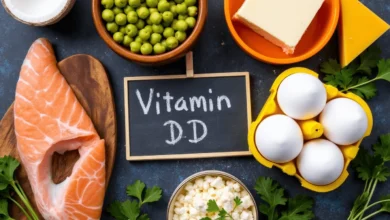
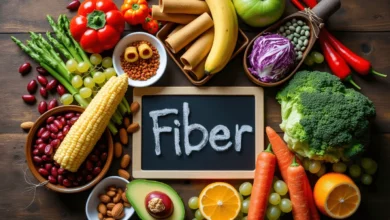
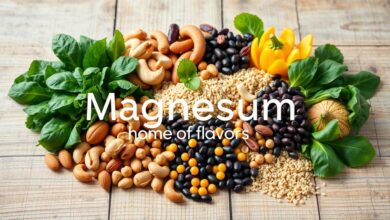
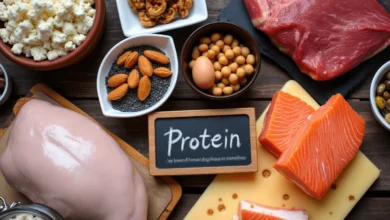
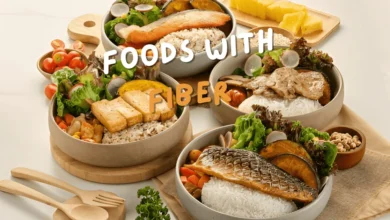
One Comment